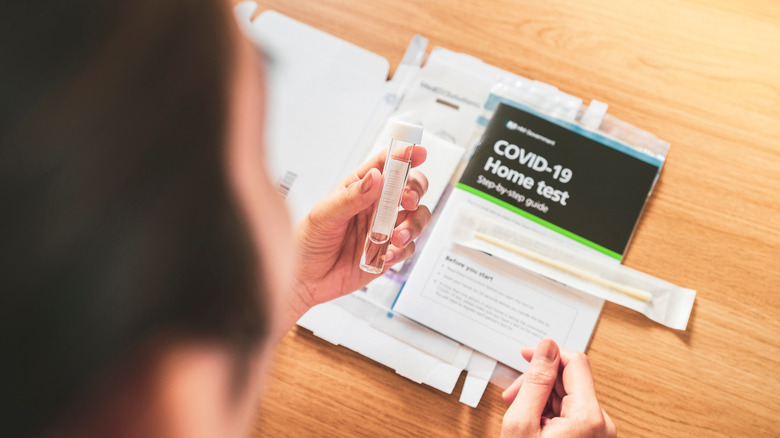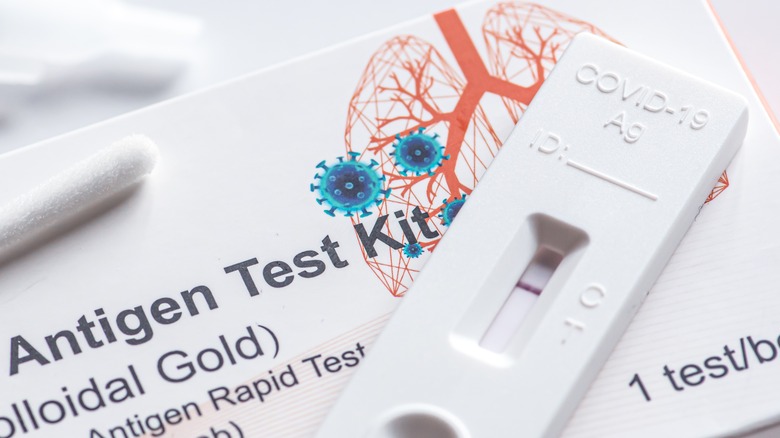How To Store At-Home COVID Tests For Accurate Results
With the COVID-19 pandemic still surging in different areas of the United States, many people are stocking up on at-home COVID test kits, either from the store or from those that the U.S. government sent out.
The beauty of these at-home test kits, according to the Centers for Disease Control and Prevention (CDC), is that results take only minutes to appear, compared to the hours or days that it may take for a lab test to come back. The tests work by using a nasal swab to detect a certain protein found within the virus (via Mayo Clinic). The promptness of the results may be especially helpful in reducing the spread of the virus, along with getting vaccinated and wearing a mask, per the CDC.
It's certainly helpful to have some at-home COVID tests on hand. However, you may want to consider where you store them, as research points to a decline in accuracy when test kits are exposed to extreme temperatures.
Avoid extreme temperatures when storing at-home COVID tests
A 2021 study published in the Journal of Clinical Virology highlighted the sensitive nature of at-home COVID-19 tests and therefore the importance of storing them in locations where they won't be affected by temperatures that are too hot or too cold. Researchers looked at 11 popular at-home rapid COVID-19 testing kits and tested the accuracy of the tests after they were introduced to temperatures of 37 degrees Celsius or 98.6 degrees Fahrenheit and 2 to 4 degrees Celsius or 35.6 to 39.2 degrees Fahrenheit. They found that the tests that were exposed to these extreme temperatures, particularly the heat, had a higher chance of returning inaccurate results.
Dr. Amy Mathers, director of clinical microbiology at the University of Virginia School of Medicine told NBC News that the biggest risk comes at high temperatures because heat destroys the sensitive proteins within the test, which affects the accuracy of the results. She stated that a test left in the cold can be warmed back up and used but the director of clinical microbiology at UCLA Health, Omai Garner, told NBC News that the best way to ensure accurate results is to store the test kits at temperatures between 35 and 86 degrees Fahrenheit.


